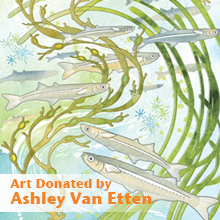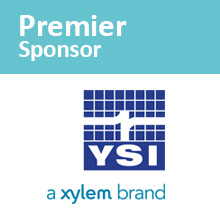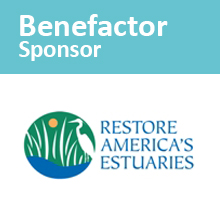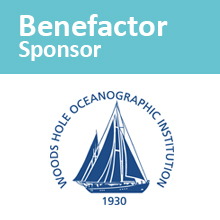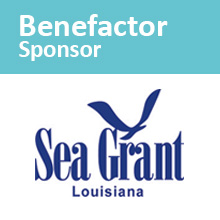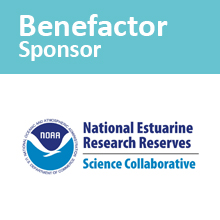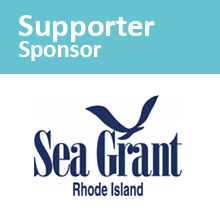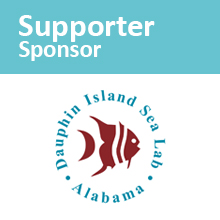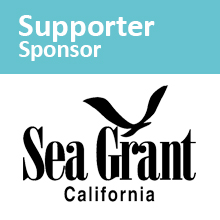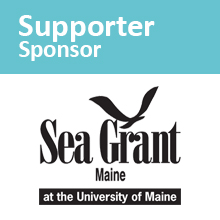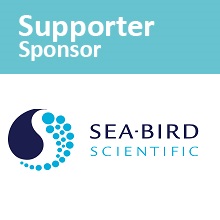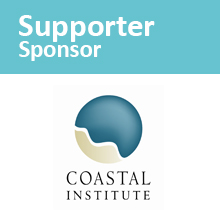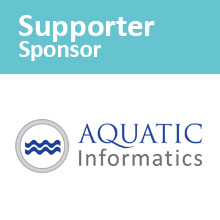|

CERF 2017 Workshops
All workshops will occur on Sunday, 5 November 2017.
Online registration is now closed.
If you are planning on attending the conference and have not yet registered, walk-in registrations will be available onsite.
Please fill out this form if you are interested in attending a ticketed event so we can ensure enough space for attendees.
If you have already registered and would like to add or change your ticketed events, please do so through this form.
1:30 pm – 4:30 pm
General: $30
Students: $20
|
CERF is committed to an inclusive culture and opportunities for underrepresented minorities in coastal and estuarine science. This workshop is one step toward broadening participation in CERF. Participants will be guided in transformative, capacity-building exercises by Dr. Diana Kardia, who has more than 30 years of experience helping organizations achieve diversity goals. Through this workshop, participants will learn valuable skills for enhancing diversity and inclusion.
|
12:30 pm – 2:30 pm
General: $25
Students: $15
|
The difficult job market for Ph.D. scientists has forced many who had planned to follow the more traditional academic path to look for opportunities in industry. Unfortunately, few programs exist for teaching scientists the skills they need to succeed in industry. We aim to provide a starting point for students and scientists interested in learning more about how to start their own businesses and how to join existing companies. This workshop will follow the same format as the similarly titled workshop held at CERF 2015.
|
8:30 am – 12:30 pm
General: $25
Students: $15
|
Collaborative Learning is a powerful stakeholder engagement process that can move groups forward in spite of conflicts, uncertainty, and complexity. Collaborative Learning, designed with knowledge of the mental models used by stakeholders, can reduce conflict, contribute to development of shared meaning and facilitate actions that conserve important ecosystem services. This workshop is for coastal managers, conservation professionals and scientists whose work depends upon effective science communication, collaborative partnerships and adaptive management approaches to value and sustain ecosystem services. Participants will learn to (1) design stakeholder engagement processes, (2) improve science communication, and (3) foster interdisciplinary learning to achieve desired outcomes.
|
Various times available.
Learn more here.
|
- THIS WORKSHOP IS FULL -
If you want to be added to the waitlist, please email the CERF Office with your preference of all day or partial day attendance. If we have cancellations, we will add waitlisted attendees to the roster.
The R language for statistical computing is a powerful tool with many data science and analysis applications. Challenges to using R are a steep learning curve and a staggering amount of contributed packages. This series of workshops will provide the foundations for continued learning of R in the context of coastal and estuarine data. A morning session will introduce the R language and two afternoon sessions will cover basic spatial analysis and evaluation of time series data. Attendees will have an understanding of how R can facilitate effective analyses and will leave with the necessary resources for continued learning.
|
8:30 am – 11:30 am
General: $30
Students: $20
|
The goal for this workshop is to provide early career scientists with a “behind the scenes” look at the job search process so that they are able to understand and negotiate the process more successfully. We will include speakers from diverse employer sectors that have experience with hiring (e.g., academic, industry, non-profit, government) and can present diverse viewpoints on the hiring process. The workshop will include “hands-on” activities such as mock interviews, a resume building workshop, or a speed networking activity with potential employers. Ample time will be available for questions and discussion.
|
12:30 pm – 4:30 pm
General: $25
Students: $15
|
This workshop will seek to advance the awareness and application of best practices related to SAV mapping. The workshop will present information on the pros, cons, and costs related to various mapping technologies. A particular focus will be the ability to measure ecosystem services provided by SAV through mapping. Principle topics: (1) Technology options for mapping SAV (2) Mapping methods to assess the ecological services provided by SAV (e.g. blue carbon) (3) Establishing a Community of Practice. The workshop will also focus on establishing a long-term network of experts that can advance SAV monitoring from the local to national level.
|
8:30 am – 11:30 am
General: $30
Students: $20
|
In a poplar book “Science Makes the World Go ‘Round,” Michael Bocher and Max Krott start by quoting, “No one has yet become popular by being right.” Too often scientists feel “right,” but just cannot seem to get our message across. Scientists hoping to change today’s world need to be able to both inform policy makers to consider making the policy as well as motivate them to do so. This workshop will bring together a variety of policy professionals to provide insight on the science – policy nexus and discuss specific strategies and opportunities for informing policy with science.
|
3 pm – 4:30 pm
General: $25
Students: No Cost
|
This popular 90-minute workshop, given at three previous CERF conferences by a veteran journal editor, is geared for students and others with little or no experience writing and publishing scientific articles. The first half will focus on attributes of well-written scientific articles. Students are expected to read in advance the following paper for discussion: G.W. Kling et al. 1987. The 1986 Lake Nyos Gas Disaster in Cameroon, West Africa. SCIENCE, 236(4798):169-175. The second half will focus on diverse aspects of publication, e.g.: how to determine authorship, choose a journal, write a cover letter, communicate with editors, respond to reviewer comments, deal with rejection (it happens!)
|
|


